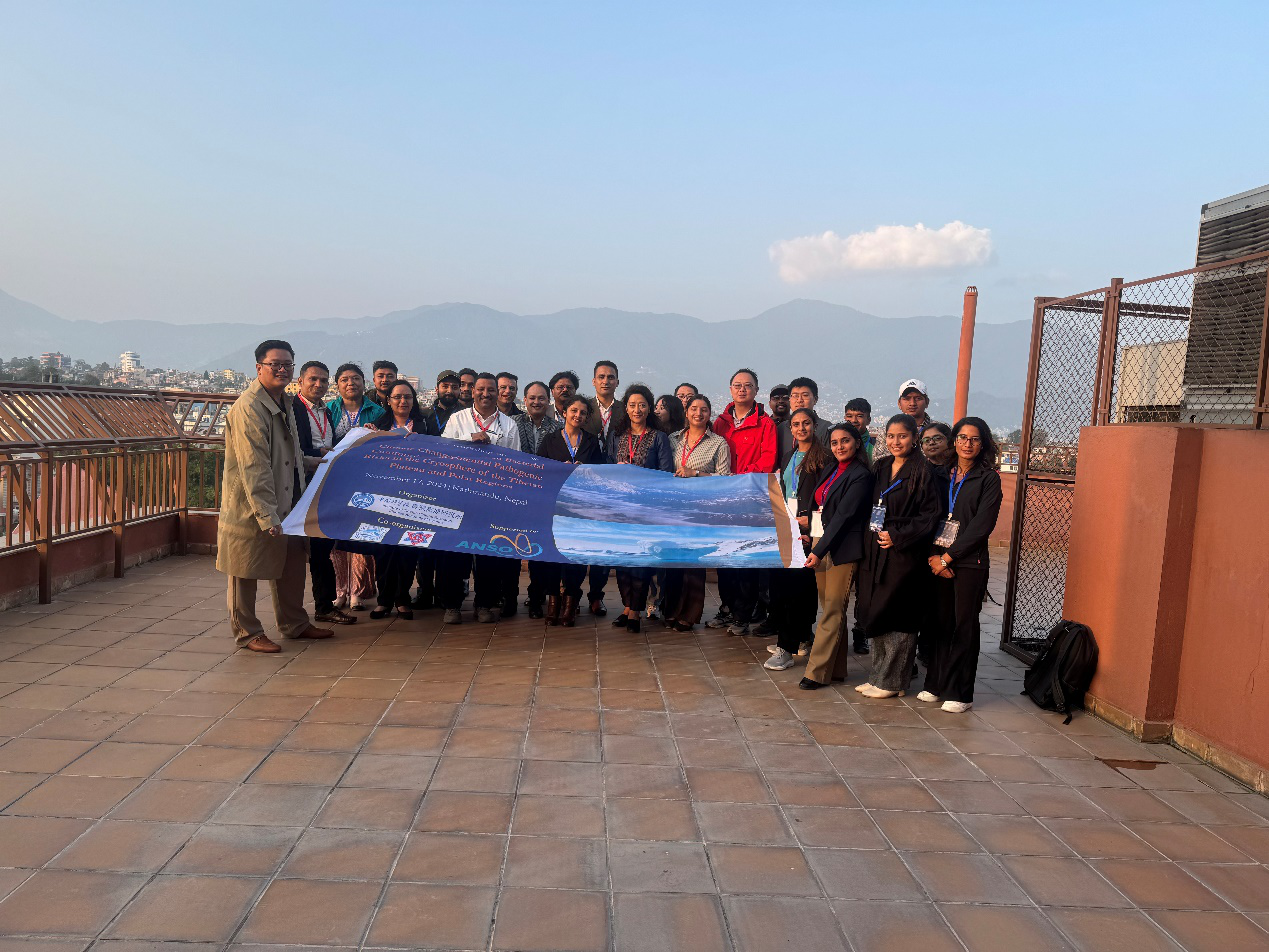An international workshop under the subject “Climate change impact on bacterial community and potential pathogenic risks in the cryosphere of the Tibetan Plateau and polar regions” was organized at Kathmandu from 16th-17th November 2024. The event was organized by the Alliance of National and International Science Organizations for the Belt and Road Regions (ANSO), Institute of Tibetan Plateau Research, Chinese Academy of Sciences, Tribhuvan University of Nepal, and Center for the Pan-third Pole Environment, Lanzhou University.
The workshop was based on the ANSO joint research project "The Impact of Climate Change on the Potential Pathogenic Risks of Microorganisms in the Cryosphere of the Three Poles.", which aims to understand the role of microorganisms in maintaining glaciers and permafrost ecosystems and evaluate the potential microbiological risks of antibiotic resistance genes under global climate change. More than 35 participants from universities and government research centers in China and Nepal attended the conference and carried out in-depth discussions on the knowledge of the diversity and function of microbes in glaciers of the three poles.
The event was attended by the Academic head (Rector) of the Tribhuvan University of Nepal, which is a permanent member of ANSO, Prof. Khadga KC, who called on greater urgency for regional and global collaboration among universities, stakeholders, and the government to combat climate change issues in the cryosphere and polar regions. Prof. Yongqin Liu delineates the importance of the Antarctic, Arctic, and Third Pole and climate studies.
The scientists Prof. Prakash Ghimire, Komal Raj Rijal, Dev Raj Joshi, and Reshma Tuladhar delivered studies of bacteria, viruses, and antibiotic resistance in the context of Nepal. Similarly, Scientists from Lanzhou University, Prof. Mukan Ji, Pengfei Liu, and Guannan Mao shared findings of antibiotic resistance genes and viruses in the Tibetan Plateau and Polar regions. Further, they make clear about the future collaboration of the Trans-Himalayan region.
This workshop will help consolidate the security of the polar cryosphere ecosystem to meet the challenges brought by global climate change to human health, food security, and ecosystems. The workshop created a diverse and high-level communication platform for future research work in the Trans-Himalayan region.
Group photo of meeting participants
Scholars from China and Nepal delivered reports in the workshop
Contributor:MAO Guannan, Lanzhou University


